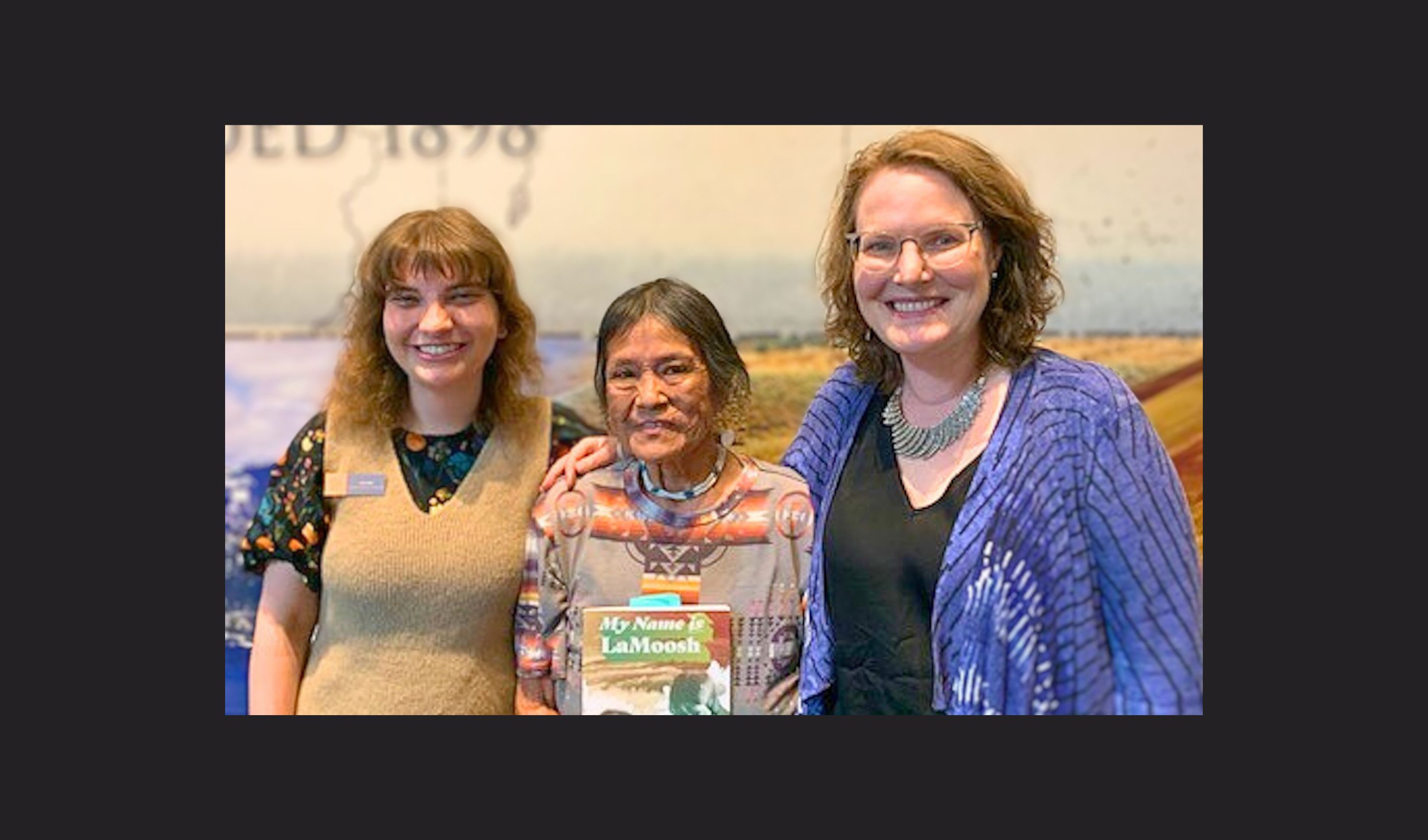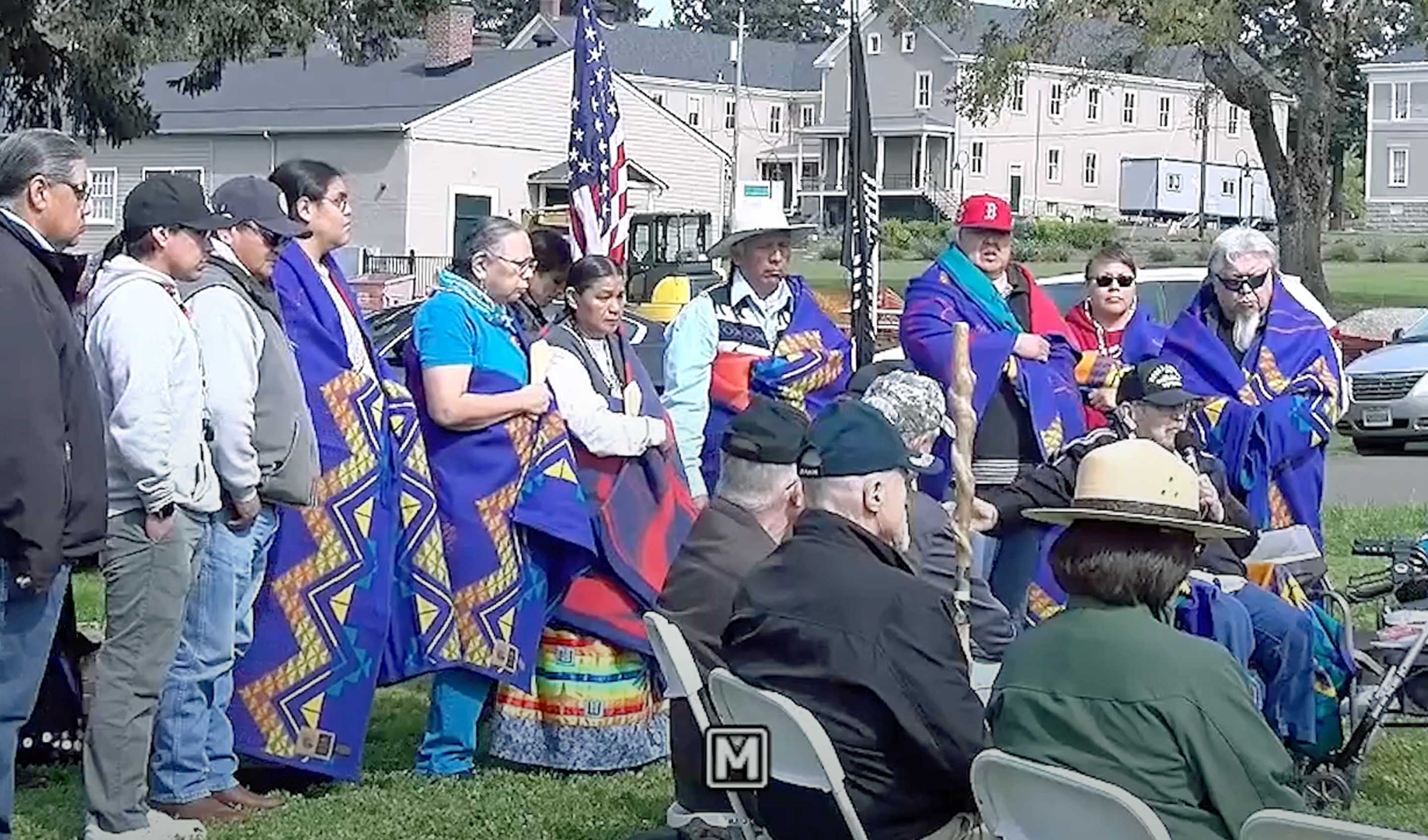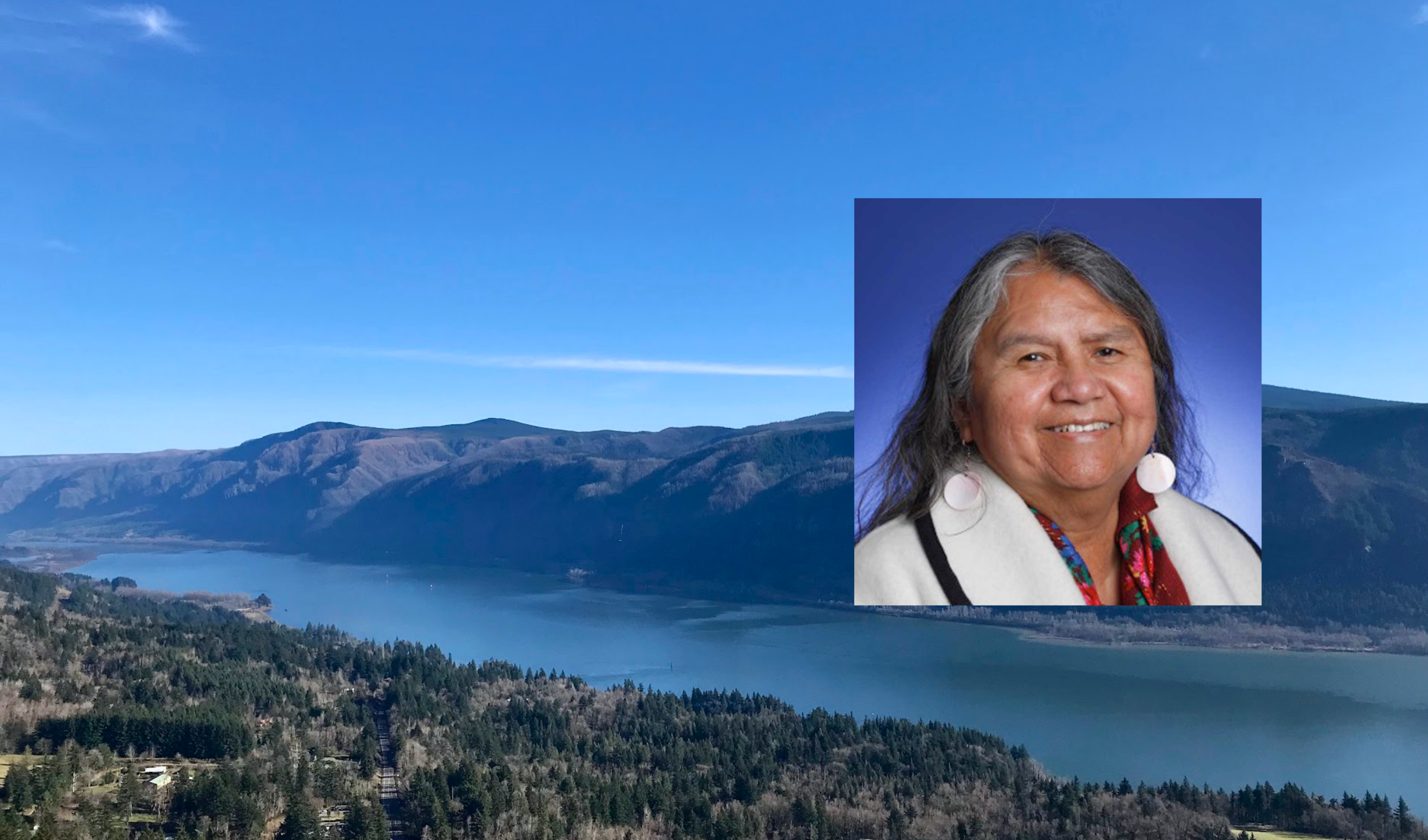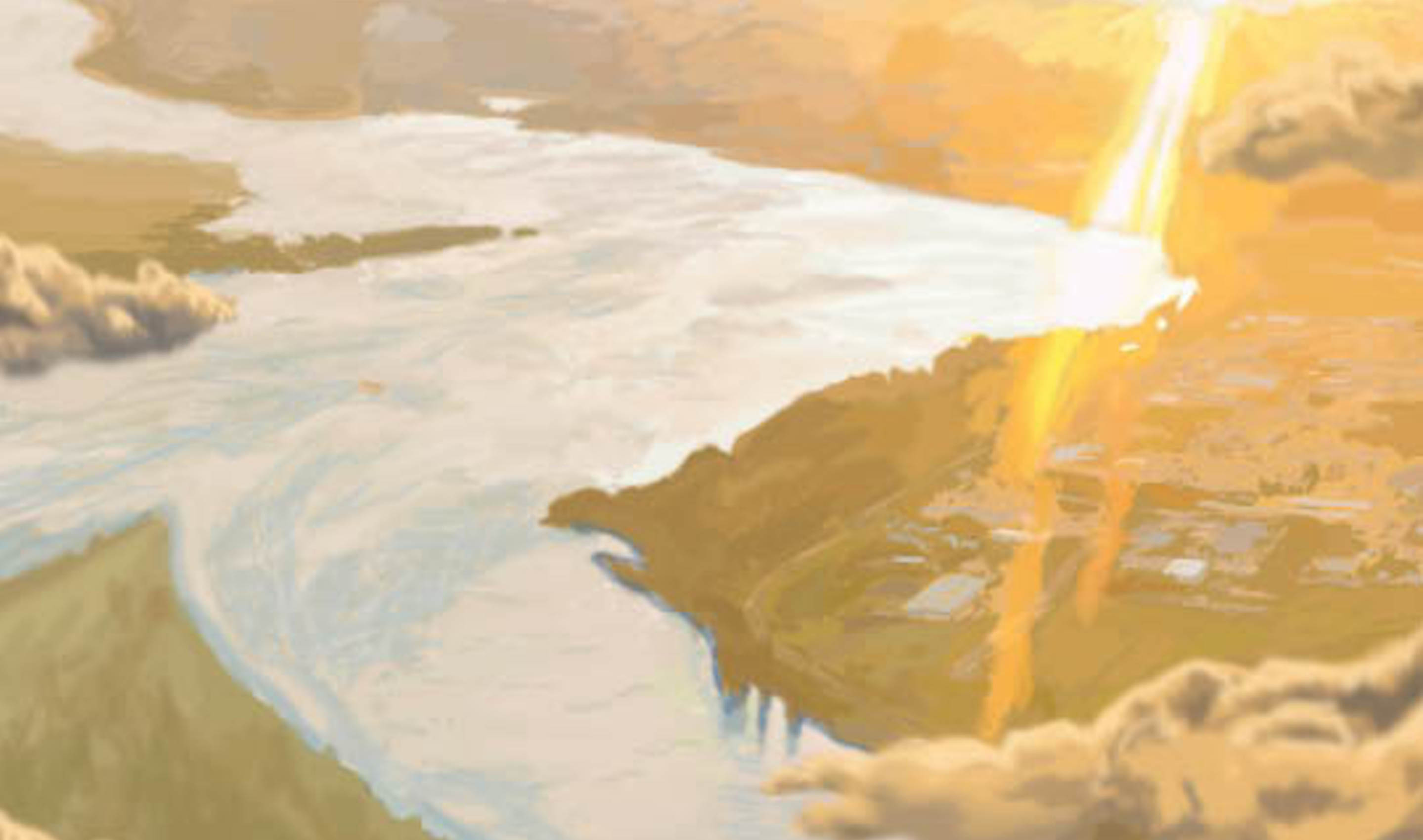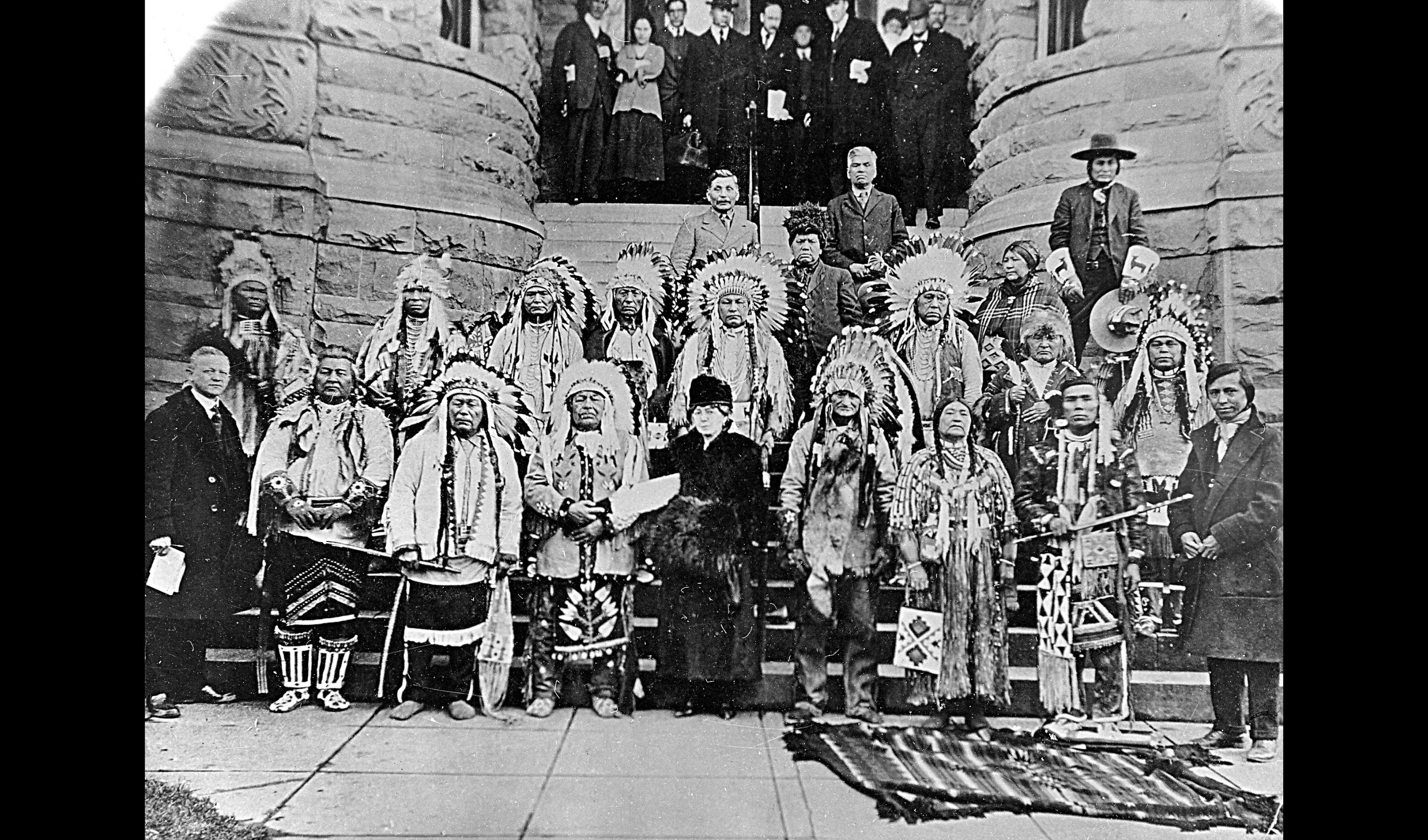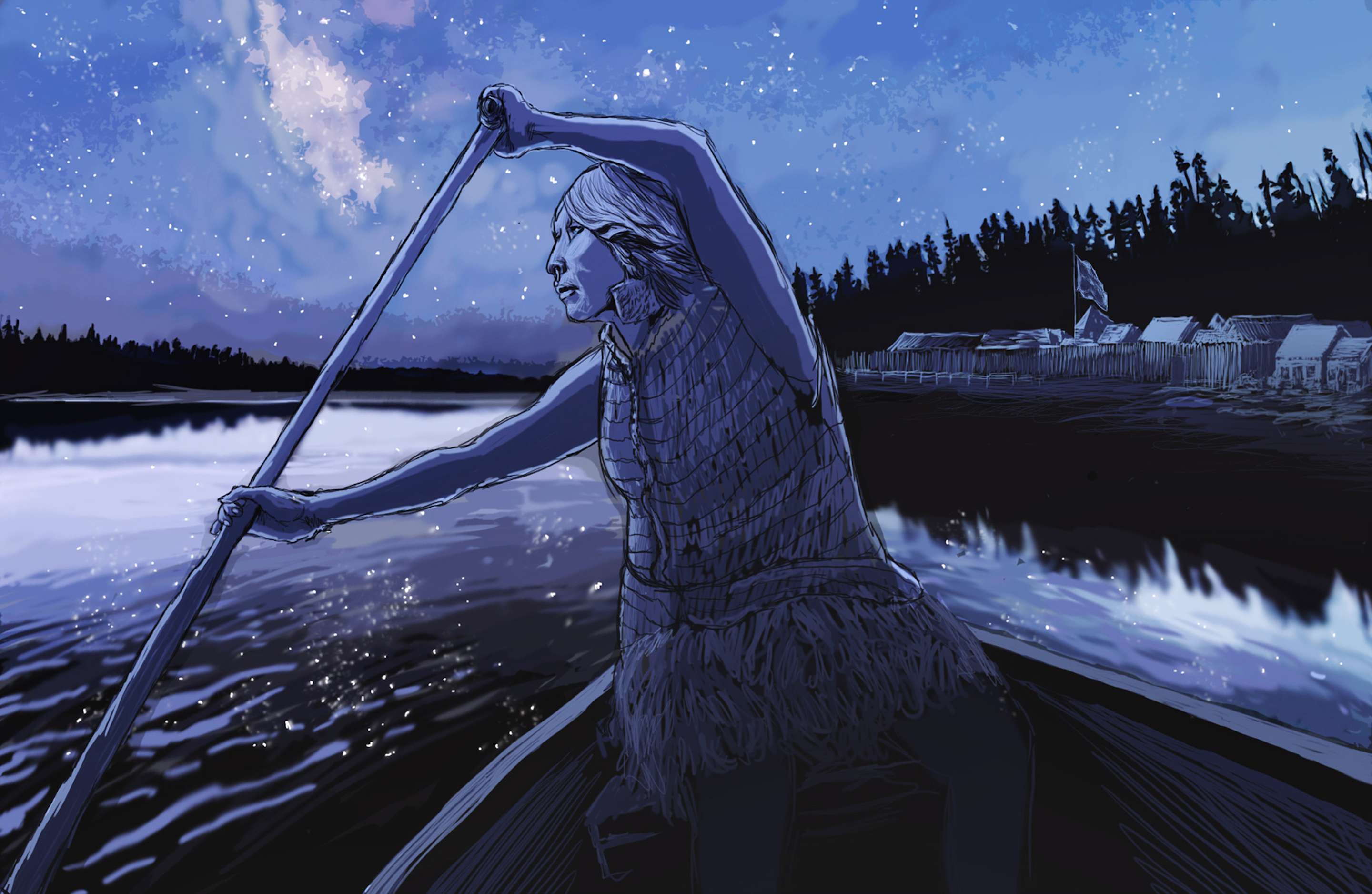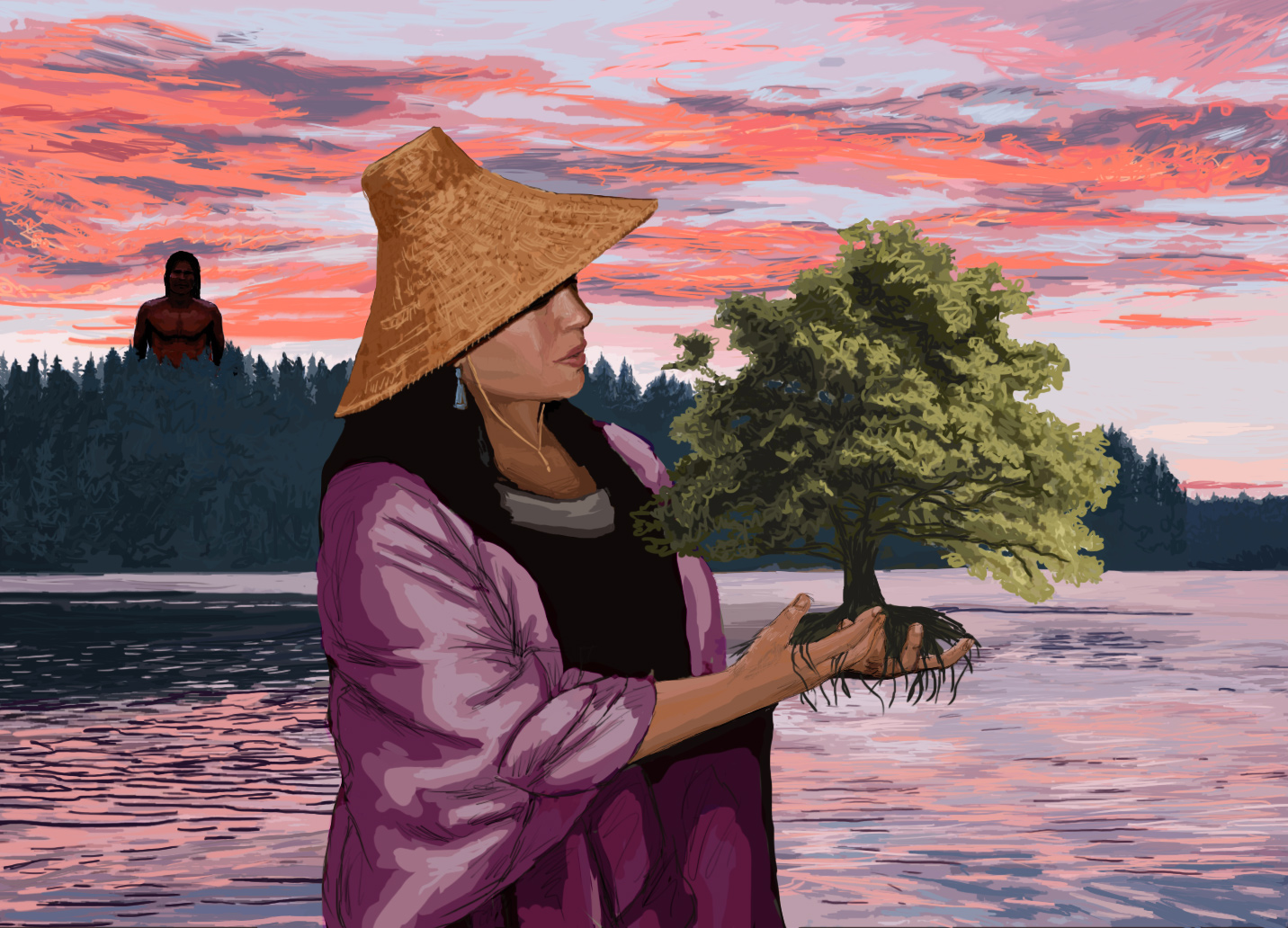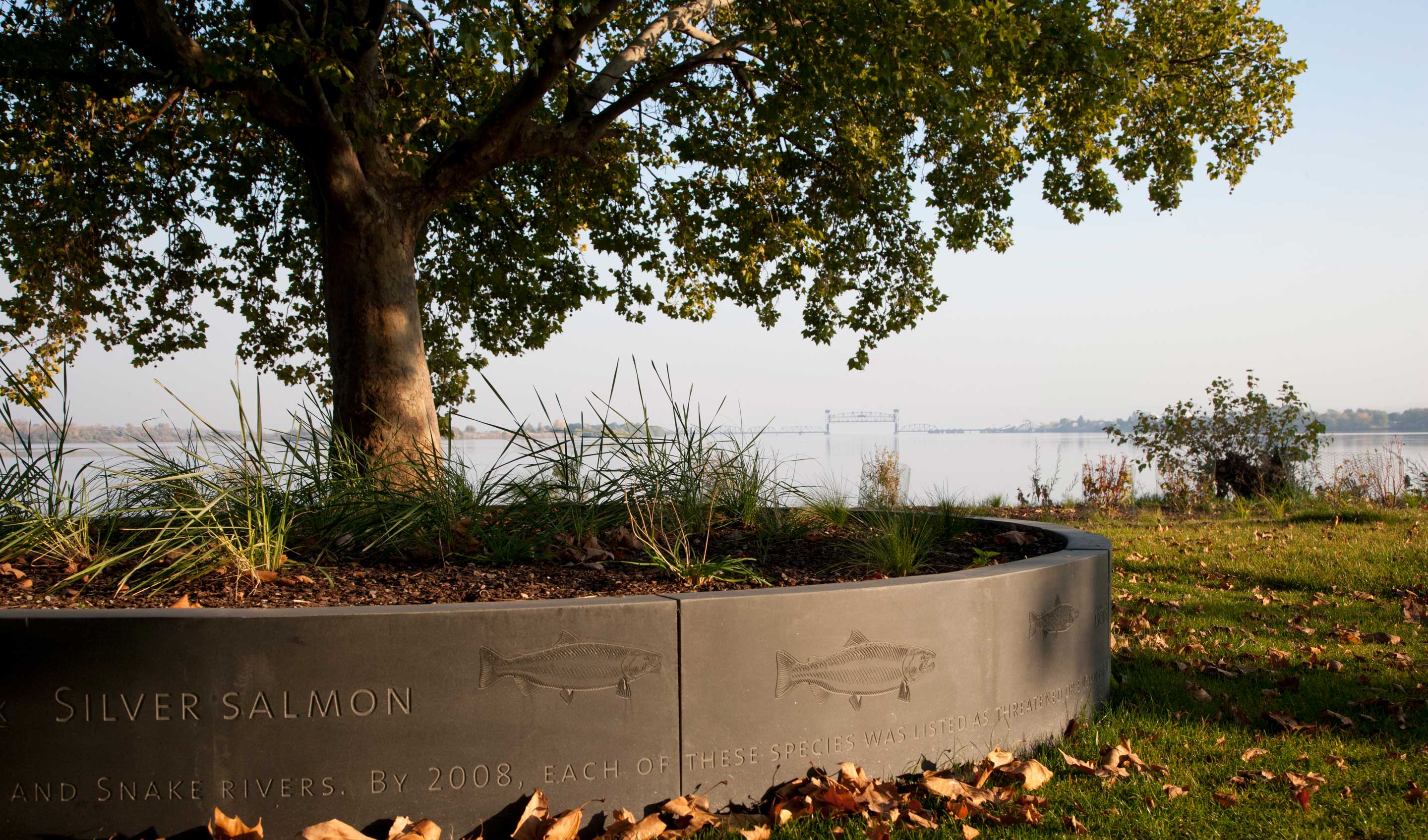Confluence Library
A new children’s book by Warm Springs Elder Linda Meanus is hitting shelves this June, entitled My Name is LaMoosh. In today’s episode, we talk to Linda as well as Dr. Katy Barber (PSU) who supported her in this project.
In today’s episode, we will hear from three Nez Perce Tribal members: Jeffery Scott, Clendon Allen, and Danae Wilson. You’ll hear them talk about the healing the Redheart Memorial brings, despite the tragedy it commemorates.
In this episode, we talk with Patsy Whitefoot. She’s an elder from the Yakama Nation, a well-known leader in education circles, an activist, and a Confluence board member. She talks about the Columbia River system, her experience with it, and the importance of reciprocity.
In November 2022, Confluence launched a new publication. Voices of the River journal features articles, stories, poetry and artwork by Native American writers and artists from Northwest Tribes. Confluence and its supporters celebrated the release of the inaugural issue of the journal during a launch party and panel discussion on November 18, 2022 at the Oregon Historical Society in Portland, which is shared here in podcast format.
This article reflects upon the vision of Yakama Elders in illuminating a policy pathway while ensuring future generations’ fishing rights at one of their usual and accustomed places.
“At Celilo Falls, the energy of the water was really powerful. I could just feel the mist spray your face, even if you stood far away. The falls had a roar that was so loud you could hear it from miles and miles away. Even in the next town over, The Dalles, you could hear it. It was an echo that you could feel in your heart.” Read this piece by Linda Meanus, about her memories of Celilo Falls.
Welcome to the inaugural issue of Confluence’s Voices of the River journal! As Digital Content Manager at Confluence, I have had the honor of acting as the managing editor for this publication.
Carlee Wilson tells the story of her ancestor, Ilchee, in this creative piece.
History did not record her wedding, how she celebrated the birth of her daughter, or what emotions gripped her when she was told her husband went to live in the sea. There’s been no acknowledgment of her own death, not even a date.
Historians, like Alice in her Adventures in Wonderland, tend to fall down rabbit holes. At least that’s what it feels like sometimes, getting lost in research into one period or people or historical event. In this episode of the Confluence podcast, we hear from a group of historians musing on their experiences going down rabbit holes in their study of Indigenous history.

